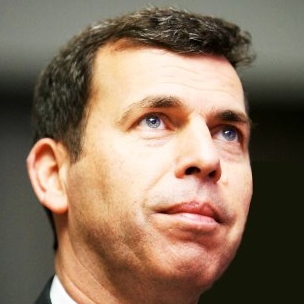
News

70 years of achievements
LIOR KEINAN
We are now marking 70 years since the magical moment when radios across Israel uttered those fateful words of David Ben-Gurion:
“The Land of Israel was the birthplace of the Jewish people. Here their spiritual, religious and political identity was shaped. Here they first attained to statehood, created cultural values of national and universal significance, and gave to the world the eternal Book of Books…
“By virtue of our natural and historic right, and on the strength of the resolution of the United Nations General Assembly, we hereby declare the establishment of a Jewish state in Eretz Israel, to be known as the State of Israel.”
Hours later, Israel already found itself deep in a war of independence and survival; a war that continues till this very day. Nevertheless, the 600 000 citizens living in Israel in 1948 became 8.7 million; two academic institutions became 62; $29 million (R349 million) in exports became $53 billion (R638 billion).
Who would have dreamt that we would reach so many achievements in the fields of research, academia and culture so quickly? Who would have imagined that 12 Israelis would each win a Nobel Prize and that we would become a second Silicon Valley after California, in the US? Who could have imagined that we would take the desert, turn it green and invent so many life-changing technologies that the list would be too long for this article?
What is even more incredible about Israel’s achievements is that we accomplished them despite probably not having one peaceful day since independence.
For 70 years, we have needed to ensure, every day, the security of our citizens and borders. For the Jewish people this is a constant recurrence, and there’s nothing like the month of April to remind us of that.
This is a month in which we commemorate our exodus from slavery to freedom and the memory of the painful fate of the Jews of Europe. How symbolic that immediately afterwards, we mark another event – Israel’s independence – since that independence is our assurance that these events will never happen again.
Today the Jewish people have a strong and flourishing country that each and every one of you can fly to if you feel like you or your loved ones are in danger.
That is why the second component of our identity, alongside that of securing our state, is the unbreakable bond with the Jews of the Diaspora. Israel has absorbed the aliyah of three million olim over the past 70 years, half of the Jewish population of Israel.
Although Israel is a safe haven for Jews, most Jews have come to Israel from democratic countries. Hence, they arrived out of personal choice. The olim who’ve come from more than 100 countries turned Israel into a melting pot of culture, music, food and colour.
One of my favourite parts of my job is talking to different people from around the world who have come to Israel for the first time. I have smiled countless times as I hear them express surprise at the diversity that defines Israel’s cities and speak of its energetic streets, the ambience of the markets and the generosity of the people. Without exception, every one of them has wanted to return to Israel in the very near future.
I had known from my previous postings the importance of the connection between Israel and the Diaspora. But here in South Africa, the experience is even more unique. Since my arrival, I have experienced full co-operation between the State of Israel and one of the most Zionist communities in the world.
I would like to take this opportunity to thank the community for your love for Israel that is not only expressed in words, but felt through your many actions and active support. Not to mention that all this is done in an environment which isn’t always simple – which is, in fact, sometimes very challenging and amongst voices that question the need for diplomatic relations, or even the basic existence of the State of Israel.
It’s unfortunate that our countries don’t reach the full potential of co-operation. In the many times I have spoken to government officials, I’ve explained how the two countries can contribute to one another.
South Africa proved to the world that you can peacefully end one of the most complex conflicts in history. Surely, it can contribute to the Israeli-Palestinian conflict, which is no less complex.
From the Israeli side, we are world leaders in agricultural abilities, alternative energy sources and water crisis management – so we can contribute greatly to the solution of South Africa’s challenges.
The best example that we must look to is Israel’s relationship with the other BRICS countries (Brazil, Russia, India, China and South Africa). In 2010, when South Africa joined this prestigious organisation, Israel’s relations with all five countries were somewhat similar. Over the past eight years, while our relationship with South Africa has not progressed, our trade and diplomatic ties with the other four countries has only grown and deepened.
These countries succeeded in separating our disagreements about the Israeli-Palestinian conflict from the rest of the elements that define our international relationship. These countries concluded that the political dispute should not overshadow the positive cooperation between us which includes conducting joint research and development, technology sharing and innovation, increasing employment, and improving people’s quality of life.
When those countries stopped having a one-sided approach and increased co-operation with Israel, their ability to affect change in the Middle East also grew. I am hopeful that South Africa will join the example of the other BRICS member states so we can bring about a future of strong diplomatic ties, mutual co-operation and contribution to the advancement of both our nations.
Yom Ha’atzmaut Sameach to the people of Israel and to all members of the Jewish community!




